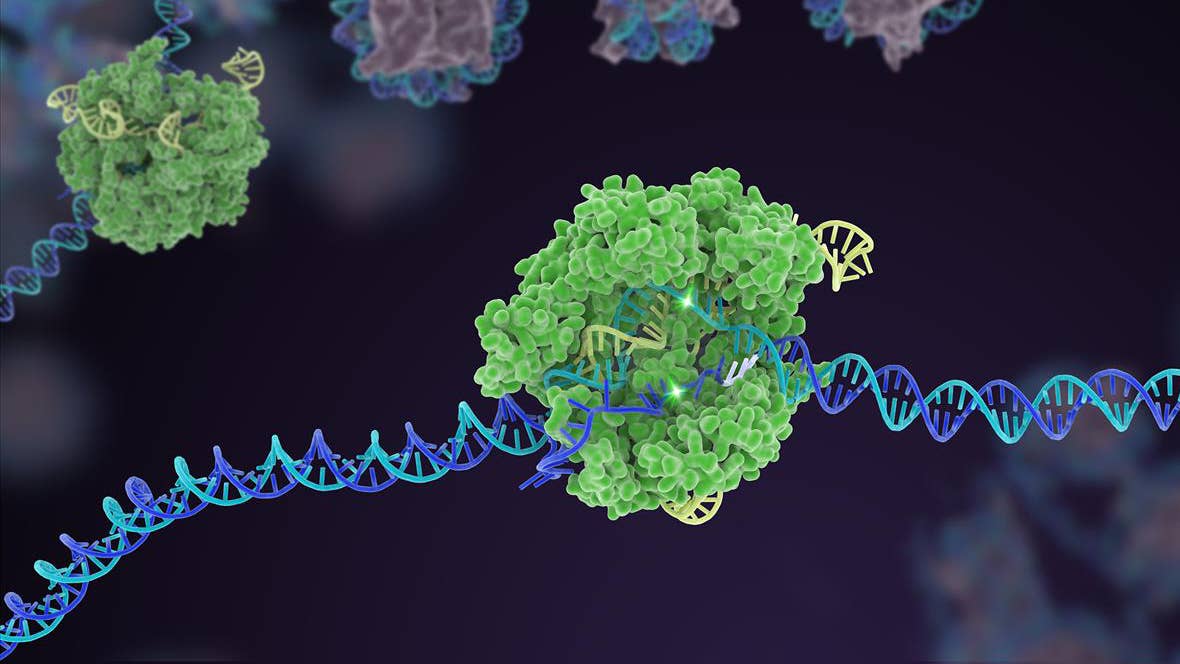Why Intelligent Optimism Is Crucial to Human Progress

Share
There is nothing to be gained from blind optimism. But an optimistic mindset can be grounded in rationality and evidence. It may be hard to believe, but we are living in the most exciting time in human history. Despite all of our ongoing global challenges, humanity has never been better off. Not only are we living healthier, happier, and safer lives than ever before, but new technological tools are also opening up a universe of opportunities.
In order to continue to launch moonshot ideas, tackle global challenges, and push humanity forward, it’s important to be intelligently optimistic about the future.
Our Pessimism Bias
When we think about the future of our species, many of us are inherently pessimistic. Our brains are wired to pay more attention to the threats in our personal lives and our world at large.
Many studies have shown we react more strongly to negative stimuli than positive stimuli, and that we dedicate more of our brain resources to negative information. Some psychologists have also shown that we tend to give greater weight to negative thoughts when making decisions and that we tend to remember negative events in our lives more than positives.
There is an evolutionary advantage to these tendencies. We often forget that our neural hardware has been developed to survive the African savannah, where survival depended on being aware of constant sources of danger. But it may no longer serve its purpose in our modern world.
The media is partially to blame for adding fuel to the fire. In fact, studies show that bad news outweighs good news by as much as seventeen negative news reports for every one good one. News agencies know very well that we will pay more attention to bad news and hence, “If it bleeds, it leads.”
Another team of psychologists from McGill revealed that people tend to choose to read articles with negative tones and respond much faster to headlines with negative words. You’re not constantly seeing negative headlines because the world is getting worse, you’re constantly seeing negative headlines because that’s what audiences react to.
Studies have shown that the public tends to pay most attention to news about war and terrorism and least about science and technology. Consequently, we have trained journalists and news channels to focus on those issues more than on our innovative breakthroughs. What does that say about us as a society?
A Need for Intelligent Optimism
Intelligent optimism is all about being excited about the future in an informed and rational way. The mindset is critical if we are to get everyone excited about the future by highlighting the rapid progress we have made and recognizing the tremendous potential humans have to find solutions to our problems.
Be Part of the Future
Sign up to receive top stories about groundbreaking technologies and visionary thinkers from SingularityHub.


Despite ongoing challenges, we have a lot to celebrate about how far we’ve come as a species. As optimists like Peter Diamandis point out, we are living in an era of abundance, and there’s a lot of evidence to prove it.
Let’s be very clear: being intelligently optimistic does not mean we turn our backs to the many global challenges we are faced with today. Our world is far from perfect. The refugee crisis, climate change, wealth inequality, and other global issues are significant and worthy of our attention.
But as physicist and futurist David Deutsch points out, “Problems exist; and problems are soluble with the right knowledge.” Intelligent optimism involves recognizing the many problems we are faced with and acknowledging that we can solve them just as we have overcome many other challenges in the past.
A Critical Mindset for Progress
We can’t let negative headlines and the media shape our perception of ourselves as a species, and the vision we have for the future. As legendary astronomer Carl Sagan said, “For all of our failings, despite our limitations and fallibility, we humans are capable of greatness.”
Hollywood likes to paint disproportionately dystopian visions of the world, and while those are possible futures, we can and must also imagine a future of humanity where we live in abundance, prosperity, and transcendence. We can’t expect current innovators and future generations to make this positive vision a reality if they believe our species is doomed for failure. It inspires us to continue to contribute to human progress and feel that we can push humanity forward.
It’s absolutely critical that our journalists cover the many challenges, threats, and issues in our world today. But just as we report the significant negative news in the world, we must also continue to highlight humanity’s accomplishments. After all, how can our youth grow up believing they can have a positive impact on the world if the news is suggesting otherwise?
Image Credit: agsandrew / Shutterstock.com
Raya Bidshahri is the founder and chief executive officer of School of Humanity, an award-winning online high school where we learn by having a positive impact on the world. She has been featured by the BBC as one of the 100 most influential and inspiring women globally. Her mission is to reinvent global education systems in order to better serve humanity.
Related Articles

Souped-Up CRISPR Gene Editor Replicates and Spreads Like a Virus

This Brain Pattern Could Signal the Moment Consciousness Slips Away

This Week’s Awesome Tech Stories From Around the Web (Through February 14)
What we’re reading
